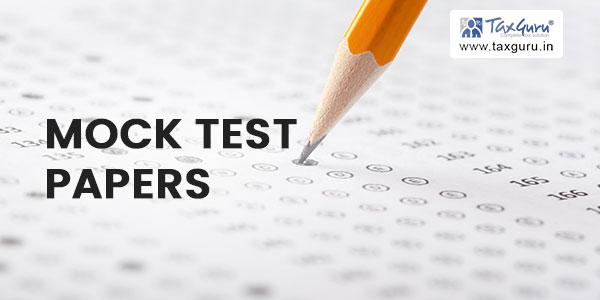Case Law Details
High Court held that LLP Act came into force in 2008 after the KVAT Act and Rules were framed. It was not in the contemplation of the rule making authority or the legislature of such a legal entity, ie; the limited liability partnership. In such circumstance, the petitioner being a partnership; though of limited liability, would have to comply with all the necessary incidence of an application to be made by a partnership firm as provided under the KVAT Rules.
_____________________________________________
1. The petitioner is aggrieved with the fact that Ext.P6 communication has been issued to the petitioner under the Limited Liability Partnership Act, 2008 (for brevity ‘the LLP Act’), which according to the petitioner, they are not obliged to comply with.
2. The petitioner’s contention is that under sub-clause (iv) of Rule 17(8) of the Kerala Value Added Tax Rules 2005 (for brevity ‘the KVAT Rules’), a partnership firm alone is referred to, since by virtue of Section 4 of the LLP Act, the provisions of the Indian Partnership Act, 1932, are made inapplicable. The petitioner would be excluded from such inclusion under the above provision.
3. It is to be noticed that sub-clause (iv) of Rule 17 (8) of the KVAT Rules reads as under:-
(iv) in the case of a partnership firm [by an attested copy] of the partnership deed and a declaration in Form No.2, signed by all the partners stating the names and addresses of all the partners and their respective shares in the business [and a certified copy of the resolution to apply for registration and authorizing a partner to file application on its behalf]
4. It is to be noticed that the petitioner is a partnership firm, though one of limited liability to the partners and there is no reference to the Indian Partnership Act in the specific provision as extracted herein above. It is also to be noticed that many legal entities have been referred to in Rule 17 of the KVAT Rules with the nominal heading of “application for registration”. The manner in which each of such legal entity is required to apply for registration has also been detailed in the provision.
5. The LLP Act came into force in 2008 after the KVAT Act and Rules were framed. It was not in the contemplation of the rule making authority or the legislature of such a legal entity, ie; the limited liability partnership. In such circumstance, the petitioner being a partnership; though of limited liability, would have to comply with all the necessary incidence of an application to be made by a partnership firm as provided under the KVAT Rules. In such circumstance, the petitioner would have to comply with Ext.P6, by way of providing a declaration in form No.2, signed by all the partners with details as shown therein.
6. However, with respect to the affidavit to be filed, the form of which, is available in the rule itself indicates that the same could be filed by a proprietor/managing partner / managing director/ director or manager. Hence the affidavit as directed in Ext.P6 could be filed by the managing partner, who as per the Partnership Act is the Designated Partner and the details of PAN card and bank accounts would be available in the declaration to be filed. The petitioner would be entitled to comply with the aforesaid directions before the registering authority.



















